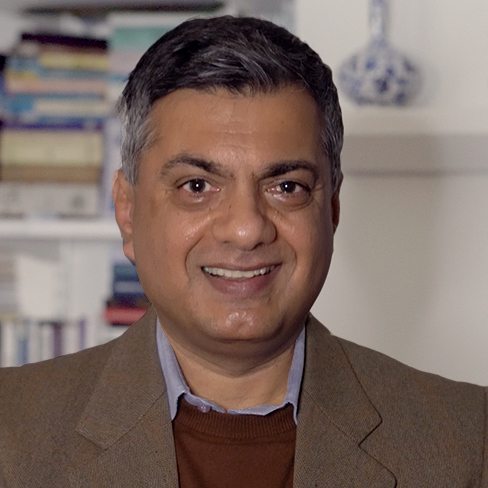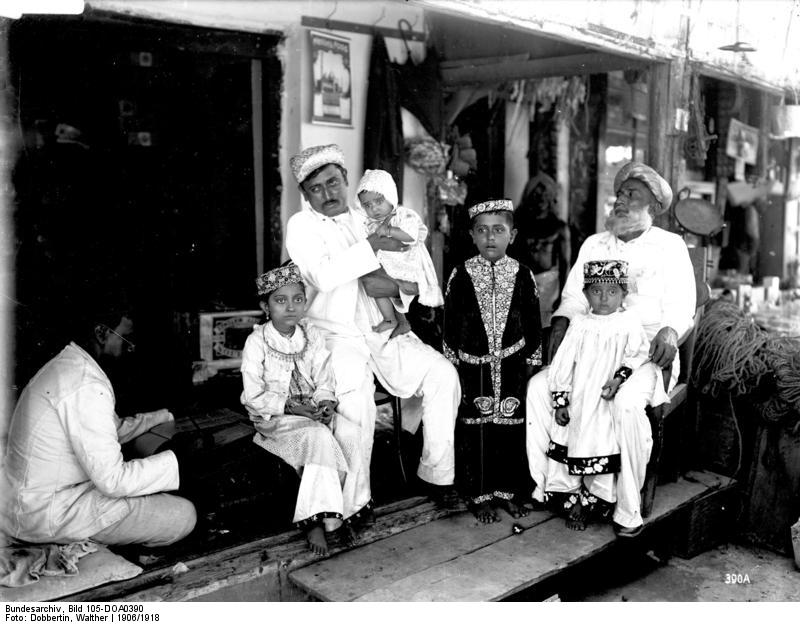Rishi Sunak’s political ascent has let loose an avalanche of commentary about the appointment of Britain’s first non-white prime minister. Whether expressed in tones of surprise, suspicion, or celebration, such reflections on the precedent set by Sunak take race to be its crucial feature. But this clarity is deceptive, since everything else about the man remains hazy. Is he to be described as someone of Indian or East African background, given that his parents were born and raised in Kenya and Tanganyika? Or is he a person of South Asian origin since his family came from a place that is today in Pakistan?
These ambiguities suggest that Sunak’s family history belongs within an imperial rather than national geography. And for the same reason he cannot be identified in purely racial terms either. Not because race and racism no longer matter in Britain, but because these categories have never defined all people of colour either in this country or its former empire. And whether in their own eyes or those of others. Race in Britain has rarely been the black-and-white thing it is in America with its history of territorial slavery. And this is to say nothing of India, where Sunak is being feted as the first Hindu to become prime minister.
Those ignorant of British realities are continually surprised that the Tory leadership should be more open to gender and race diversity than Labour. Claiming that women and minorities in the Conservative Party must privilege class over their other identities doesn’t get us far in understanding this phenomenon. The party’s diversity of leadership instead displaces class as much as race from political debate. It is Labour that is saddled with these categories, though they are symbolized not by the large support it enjoys among ethnic minorities so much as in the figure of the white working class.
From race to civilization
The British Empire possessed more than one language to identify its subjects. While race dominated in some parts of it, civilization did in others, with occasional overlaps between the two. And civilization was frequently represented by religion in places like India, so that even when migrant families such as Sunak’s were defined racially in East Africa, they rarely identified with these terms themselves.
While Indians, Pakistanis, and Bangladeshis had been identified by religious categories during the raj, they came to be defined in national terms when arriving in Britain as immigrants. In part this had to do with the division of British India into two and then three countries after independence. It was the arrival of people of Indian origin from Africa and the Caribbean that led to the shift from national to racial identity in the term Asian, itself taken from the official vocabulary of colonial East Africa.
The immigration of Asians from East Africa in the 1960s and 1970s allowed Britain to import a whole way of thinking about society from countries like Kenya, Uganda, and Tanzania. These places had been described as multi-racial societies because they contained groups defined as European, Asian, Arab, and African in that hierarchical order. With the migration of East Africans, the United Kingdom, too, became a multi-racial society. Despite their relatively small numbers, East Africans had a disproportionate influence on British society. This was perhaps because they represented a much wider set of occupations in business and the professions than the early labour migration from South Asia and so could enter more areas of British society as Sunak’s family did.
But with all their differences, the various populations of South Asian origin in the UK, East Africans included, continued to identify themselves by religion, caste, and nationality, rather than race. And by the end of the 1980s these categories, especially religion, finally trumped race and destroyed the always rather tenuous ‘Black British’ political identity that had once brought non-white immigrants together.
The return of religion
It is not that different ethnic groups no longer interacted with one another, they just did so under labels other than racial ones. The religious identity that first broke through the logic of race in British public life was Islam, starting with the mobilization against Salman Rushdie in 1989. And the more Muslim identity expanded in the public sphere, the more it came to include different racial as well as national groups.
While Islam represented the most spectacular entrance of religion into the public arena it was far from exceptional. Indeed, if the 1960s and 1970s were defined by the language of multi-racialism, the 1980s and 1990s saw the emergence of multi-culturalism as a global phenomenon. Race was relegated to second place behind cultural difference, itself very likely developed from imperial ideas about civilization.
The thing about culture was that it could be infinitely multiplied and did not fit into a black-and-white binary. This is why in institutional-speak it comes loaded with terms like ‘pluralism’ and ‘diversity’ rather than the hierarchy and opposition that continue to mark race relations. Even in the US, figures like Senator Jesse Jackson sought to turn a racial into cultural identity by popularizing the term African American on the model of immigrant groups like Italian Americans.
This new world of cultural diversity emerged after the Cold War, which had been defined by the ideological conflict between capitalism and communism. Now it was only Islam that represented bad culture in the form of ideology, its intolerance serving as a warning to others just as communism once did. The rest could join an endless celebration of pluralism and diversity in the new era of globalization.
Recent events, from Brexit to the pandemic and fallout from the war in Ukraine have put the celebration of globalization on hold. What will happen to the cultural and religious diversity that upheld it with the rise of anti-immigrant parties and stronger national identities world-wide? Is Rishi Sunak’s ‘cultural difference’ as a Hindu a vestige of the globalization that enabled his transatlantic career in finance as much as his international marriage?
Sunak represents a figure for whom it is religious, cultural, or civilizational rather than racial identity that matters. But this identity cannot remain confined to the UK since India’s rise as a global power has already magnetized Hindu communities abroad. Unlike Muslims and Sikhs, who are perceived as bringing foreign conflicts to British shores, Hindus have been seen as a model minority. But they now run the risk of being drawn into similar controversies, as the recent riots in Leicester illustrate.
Rishi Sunak will therefore have to resist being seen as partisan in his political rather than racial affiliations, with the conflicts between minority groups involving third countries looming larger than race relations as they have conventionally been understood. Like his colleagues Priti Patel and Suella Braverman, he may also feel the need to be tough with Indians on issues like immigration while nevertheless relying on the cultural and religious identity he shares with them to define him.
Unlike the logic of assimilation, which can absorb race in the figure of the black, brown, or mixed-race Englishman in supposedly colour-blind ways, cultural or religious diversity requires calling attention to some differences if not to others. Indeed, cultural or religious identity here obscures while taking the place of race. And it is the simultaneous assertion and sacrifice of this identity that marks the post-racial politician’s career in Britain today.
Picture: An Indian Ismaili trader’s family in Bagamoyo, German East Africa, c 1906/18, Bundesarchiv, Bild 105-DOA0390 / Walther Dobbertin / CC-BY-SA 3.0.

Faisal Devji is Professor of Indian History at the University of Oxford. He is the author of, inter alia, Muslim Zion: Pakistan as a Political Idea and The Impossible Indian: Gandhi and the Temptations of Violence.
